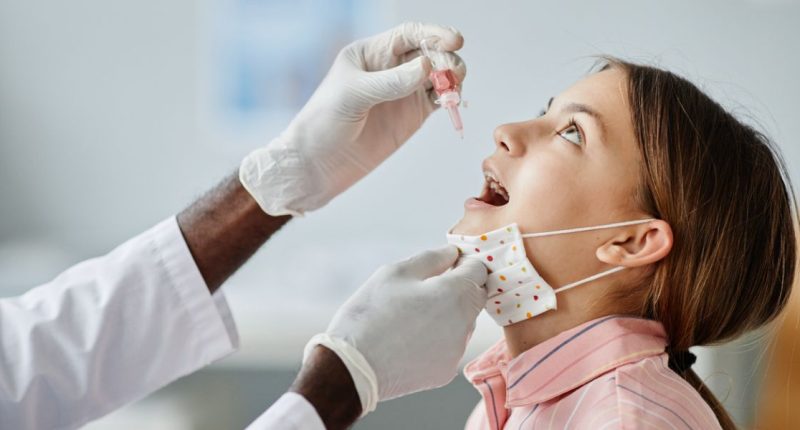Scientists who have developed insulin drops for people with diabetes have said they could provide an “easy and convenient” alternative to regular injections.
A team from the University of British Columbia say the drops, which are placed under the tongue, provide a pain-free option which could help people with diabetes maintain their health without needles.
The drops are made up of insulin with a unique cell-penetrating peptide (CPP) which helps the insulin reach the bloodstream. Without it, insulin gets stuck in the lining of the mouth.
- 1 in 4 people with insulin-dependent diabetes have eating disorder symptoms, research shows
- Men at higher risk of type 2 diabetes due to pronounced insulin resistance of adipose tissue
- Scientists develop experimental type 1 diabetes drug which shields insulin-making cells from immune system attack
Lead researcher Dr Shyh-Dar Li, who developed the CPP with colleagues, explains: “Insulin is a complicated molecule. In pill form, it’s easily destroyed in the stomach. Insulin also needs to be rapidly available in the blood, but as a large molecule, it cannot get through cells easily on its own.”
Postdoctoral researcher Dr Jiamin Wu added: “Think of it as a guide that helps insulin navigate through a maze to reach the bloodstream quickly. This guide finds the best routes, making it easier for insulin to get where it needs to go.”
Dr Li said the team has been working on needle-free insulin alternatives for the last three years and explored nasal sprays before landing on oral drops.
Injections ensure insulin gets into the bloodstream quickly, but very often people with diabetes need to inject themselves three or four times a day. Many find this challenging and failure to maintain this routine can cause serious complications.
- Insulin shortages spark anxiety among diabetes patients
- Insulin spray could soon end the need for diabetes injections
- Breakthrough oral insulin delivery system shows promise in early studies
Dr Li said: “Hopefully, the oral drops open up a new possibility for diabetes patients — making it easier to take their medications and regulate their blood glucose to maintain their health in the long run.”
Dr Li said they are hoping to deliver quick, painless insulin delivery with no serious side effects, with needle-free technology set to remove the risk of cross-contamination, needle pricks, accidental infections and unsafe disposal of contaminated needles.
The next stage for the team is licencing the product to a commercial partner.




